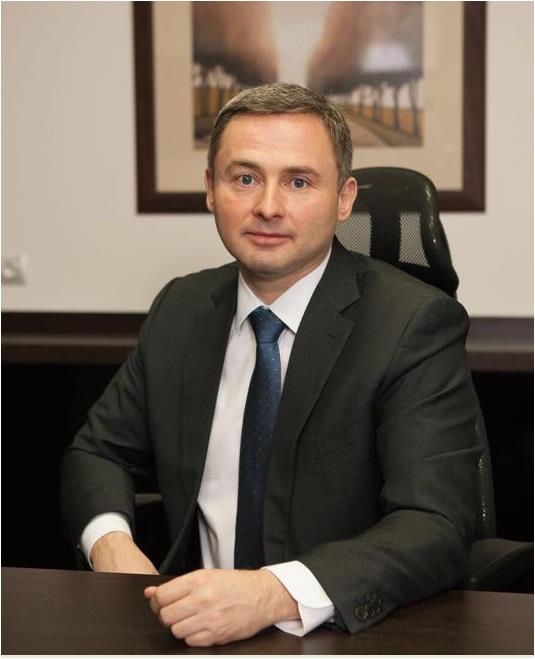
Grigory Potapov, CEO, Pharmstandard JSC, on Drug Labeling
“Manufacturers would like to have a more self-explanatory regulation mechanism.”
According to Kommersant, on December 17, 2018, Russian Prime Minister Dmitry Medvedev signed a regulation on implementation dates of drug labeling for the medicinal products enlisted into the Seven Nosologies Program — they shall have the labeling implemented six months earlier than other pharmaceutical products. In addition, Kommersant has at its disposal another draft regulation stipulating technical requirements to the labeling system. As Grigory Potapov, Chief Executive Officer, Pharmstandard JSC, tells in the interview to Kommersant, in spite of clarifications contained in this regulation, pharmaceutical manufacturers still have questions on this issue.

— What are your major concerns about the future labeling?
— The burning issue to be solved promptly is crypto code implementation. The currently proposed size of the crypto code causes lots of technical challenges concerning its application on the package. While these technical challenges can be largely solved if the crypto code length is reduced, i.e. the number of characters is cut. The introduction of a crypto code of the proposed size is challenging for many companies having participated in the pilot project and already started labeling implementation without a crypto code.
— Do you still have to discuss the issue of Crypto code length shortening with the regulator?
— During the discussion held with us and other companies the operator of the Center for the Development of Advanced Technologies (CDAT) has confirmed its commitment to apply this measure with no loss in the system quality. The CDAT is fully proficient and confirms us a possibility of such solution in the standard operating mode. Now we have to realize how to implement it technically and what changes to be introduced into the documents. If the crypto code length is kept unshortened, most companies that are deeply involved into the project will have to readjust or modify the installed equipment. In this case, the labeling implementation could be postponed for approximately one year.
— What labeling-related issues are still pending?
— It is highly essential for pharmaceutical manufacturers to have access to information on circulation of every manufactured drug pack at all stages of its circulation within the commodity distribution network. That can solve a number of challenges to enhance the pharmacovigilance efficiency, as well as the issue of recirculating of counterfeit or stolen pharmaceuticals. Everybody is aware of the situation where during drugs procurement for RUB 20 million by the Sverdlovsk Regional Cancer Center one of suppliers offered drugs that had been earlier stolen from St Petersburg Cancer Center. We also face similar issues, and the labeling system could mitigate such risks. So the pharmaceutical community will keep a close eye on the issue to ensure that the provision on pharma manufacturer`s access to information on drug circulation is not “accidentaly” missed.
— Is there any concern that it can happen?
— There are various scenarios and ideas concerning the changes to be introduced to the regulatory mechanism. In the absence of access to the information, the companies’ commitment for labeling implementation will become much lower. Another important aspect is the cost. Now the companies are expected to pay 50 kopecks for each drug pack, except for the drugs that cost no more than 20 rubles, in this case the crypto code is free. As a result, Pharmstandard will have to pay several million rubles a year. We are aware of the fact that the operator shall bear the financial burden of creating an information system and the companies shall have to bear costs of connection to it. But the manufacturers would like to have a more self-explanatory mechanism of cost regulation in the future and take part in the dialogue with the government. Another issue is how the Russian labeling system will interact with legislation systems of other countries, and the Eurasian Economic Union in the first place. Our partners will also have to implement a similar labeling system to ensure circulation of their products in Russia. For this purpose, it would be necessary to accept a national methodology on labeling at the level of the Eurasian Economic Union in order to unify the general system and to prevent creating new unexpected barriers. To the best of my knowledge, just few of manufacturers in the Eurasian Economic Union are actively pursuing preparations for labeling implementation in the format it is discussed in Russia.
— Can the Russian labeling system have an impact on imports from other countries?
— Foreign companies will have to readjust their overseas plants to implement the labeling system we are discussing. It may happen that they will consider that the labeling implementation on their plants for supplies to Russia is not feasible, especially if the supply rate is low. It may generally affect high-cost drugs for treatment of orphan diseases, the annual supplies of which do not exceed several tens of thousands of packs. In this case Russian companies may provide an opportunity of labeling and packaging using own capacities. In general, we are positive about labeling and would not like to postpone its implementation. However, it is important that the regulator and the Center for the Development of Advanced Technologies (CDAT) consider the opinion of manufacturers.
Source: Kommersant Newspaper No. 233 of December 18, 2018, Page 9

| Back | Print out |